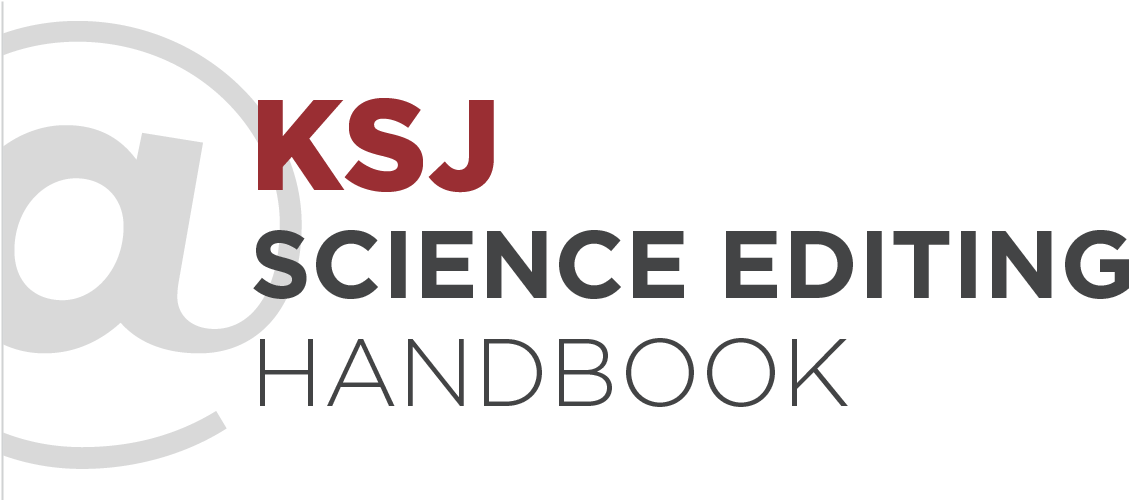Working With Fact-Checkers
By Brooke Borel / 6 minute read
Fact-checking is an excellent career path for many journalists — some, for instance, build robust freelance businesses by fact-checking for multiple outlets or book authors, while others may become the research editor or director at a glossy magazine.
But many fact-checkers are early-career journalists, so they may not have as much clout as, say, a well-known writer or a longtime editor. One of the many duties of an editor is to know how fact-checkers fit into the larger ecosystem at your publication — and to make sure they have the respect they need in order to do their job. Let your checkers know that you have their back when they need support.
One of the most infamous recent examples of how this system can break down comes from Rolling Stone. In 2014, the magazine published a story titled “A Rape on Campus,” which outlined an alleged rape at a University of Virginia fraternity party. After the story was published, it fell apart: Key reporting was poorly sourced or inaccurate. The fraternity, individual members of the fraternity, and an associate dean at UVa sued Rolling Stone for millions; all of the cases eventually ended in settlements.
Notate, notate, and notate. If questions arise, carefully documenting your work will come in handy. (You won’t remember it in six months if you are like me!) Check everything, especially the things you think you know.
Michelle Harris, freelance fact-checker
Rolling Stone has a fact-checking department. So what went wrong? A lengthy report from the Columbia Journalism Review presented a list of problems. One particularly salient issue: The fact-checking department did question some thinly sourced material in drafts of the story. But the fact-checkers were overruled. According to the CJR report, the head of the fact-checking department at the time noted that decisions on sourcing for the story “were made by editors above my pay grade.”
If these more powerful editors had listened to the fact-checking team, they may have avoided an expensive and damaging mistake.
There’s a flip side, too. Fact-checkers fill an important role, but because their job is to specifically question claims and make sure they hold up under scrutiny, sometimes they can swing too far in the other extreme. They can be a little too pedantic. Maybe, in a science story, the fact-checker will ask for a caveat or a deeper explanation for every single point of science in a story. Here, it’s the editor’s job to push back, because your goal is to produce something that is not only accurate but also readable and compelling. If no one wants to read a piece, what’s the point?
No matter what: As an editor, make sure you are also acting as a diplomat for your entire team. Be respectful of everyone’s efforts on a story, and be thoughtful in how you include — or don’t include — the fact-checkers’ recommendations.
How to Find Fact-Checkers, and What to Pay Them
It’s not always easy to find a fact-checker, especially if you’re in a pinch and need someone fast. For the most part, editors find their staff and freelance fact-checkers through word of mouth. So one approach is to simply ask colleagues for recommendations, even if they work for another publication. If you are looking for a fact-checker with experience in science journalism — or in a specific scientific discipline — it’s especially helpful to know colleagues at other science publications who can help.
Freelance journalists also often supplement their income with fact-checking gigs, so it doesn’t hurt to ask your pool of writers, too. The Knight Science Journalism Program at MIT is working on a fact-checking website that will include a public database of fact-checkers, which will make some of these searches easier. The fact-checking database should be live by 2021.
As for what to pay fact-checkers, it varies. According to the Editorial Freelancers Association, fact-checking rates as of now range from $46 to $50 per hour. The 2018 KSJ fact-checking report found an average of $27.76 to $34.27, ranging from $15 to $75 an hour, though the data were limited. Expect to pay more for rush jobs, weekend work, and fact-checkers with lots of experience or expertise in a specific field. Some outlets also pay fact-checkers by project rather than by the hour.
With Great Power Comes Great Fact-Checking Responsibility
As an editor, you hold a lot of power over your team. It may not always feel that way, but when it comes to ushering a story through to publication, you are the boss (or at least a boss). You are a gatekeeper in assigning stories. You also have final say over what makes it into a published piece and what doesn’t. Don’t throw this power around just for the sake of being powerful; use it wisely.
When it comes to fact-checking, there are many opportunities for an editor to make sure a story is right. You can tactfully and diplomatically ensure that your journalists and fact-checkers are paying attention at each of these steps.
Science can get complicated fast. Don’t be afraid to ask questions, even seemingly basic ones. A willingness to say ‘I don’t understand’ or ‘I don’t know’ is a superpower.
Emily Krieger, freelance fact-checker, editor, and writer
The first opportunity is at the stage of pitching or assigning. Make sure the stories you pick up are sound and worthy of coverage. If the reporting in a story pitch seems too thin, ask the reporter for more information — relevant studies, for example, or other solid sources in support. Vet freelancers to make sure they are the right people to tell given stories — look at their potential conflicts of interest, which could skew their reporting or how it is perceived, and look at the quality of the information they have published elsewhere or posted on social media. Also, be clear upfront about your publication’s fact-checking policies, so the writer isn’t surprised when the story gets to that stage.
Editors also have an opportunity to help with fact-checking every time they read a draft of a story. This doesn’t mean you need to look up every fact line-by-line, as a fact-checker would. Instead, ask the writer tough questions, and make sure to clarify murky claims: Where did this come from? Says who? Source? And if you know a topic fairly well and you think a view or key source is missing, prod the writer as to why it’s been left it out. (Remember: You may think you know more than the writer, but you often don’t. Always be respectful in these interactions.)
Editors sometimes have to play referee between writers and fact-checkers. Ideally, of course, everyone who touches a story will be a team player, cooperating to make the story as good and as accurate as possible. Still, a writer may dislike a source the fact-checker picked or may prefer a certain phrasing that is more literary, if less accurate. And a fact-checker may get a little lost in the weeds. You’ll be the tiebreaker in these disagreements, so make sure you understand everyone’s reasoning and sources.
The Scary Legal Stuff
Fact-checking is useful for more than getting accurate information to readers. It can also help save your publication from an expensive lawsuit. But first: Do not use this guide for legal advice. For that, you’re going to need a media lawyer. Second: We aren’t getting into legal definitions here. Rather, briefly, these are the potential legal issues that fact-checking could help catch:
- Defamation: If a journalist publishes or airs damaging information about someone and it turns out to be untrue, the journalist and the publication could face a defamation lawsuit. (The law varies, so it depends on whether the story is about a person who is a public figure, like a politician or a celebrity, or a private citizen; public figures face more hurdles to win a defamation case.) Fact-checkers could stop misinformation from appearing in a story, particularly if they are clarifying information by re-interviewing sources and finding new ones.
- Invasion of privacy: The line between newsworthiness — information that’s in the public’s interest to publish — and a reasonable expectation of privacy isn’t always clear. Fact-checkers can weigh in on individual cases, particularly since they will be familiar with the source material and could catch potential problems — for instance, information gathered through illicit means, such as illegal surveillance or trespassing.
- Copyright infringement: For the most part, it’s OK for journalists to refer to published works in their writing. The practice typically falls under what is called fair use. But there are exceptions. You shouldn’t expect a fact-checker to know the legal distinctions. Still, they can help flag passages in which a story republishes other work, which can help you decide if you need to contact a lawyer.
- Plagiarism: While lifting someone else’s writing isn’t technically illegal, there are some cases in which plagiarism could edge into copyright infringement. Even when it doesn’t, it’s still considered a major journalistic sin. A fact-checker can help catch plagiarism — for instance, by recognizing phrases or ideas taken from source material.
Keeping Records
By keeping source material from each story you publish, you can help address errors caught by your eagle-eyed readers. You could also help protect your publication from a lawsuit. Whether you keep an old filing cabinet or have a digital system on a shared drive or in the cloud, remember to:
- Keep it organized, so you can find a specific source days, months, or even years after a story publishes.
- Keep it secure, particularly for sensitive material such as leaked documents and contact information for anonymous sources and whistle blowers.
- Keep it for the appropriate amount of time. Look up the statutes of limitation in your state and make sure your records stay intact for at least that long.


